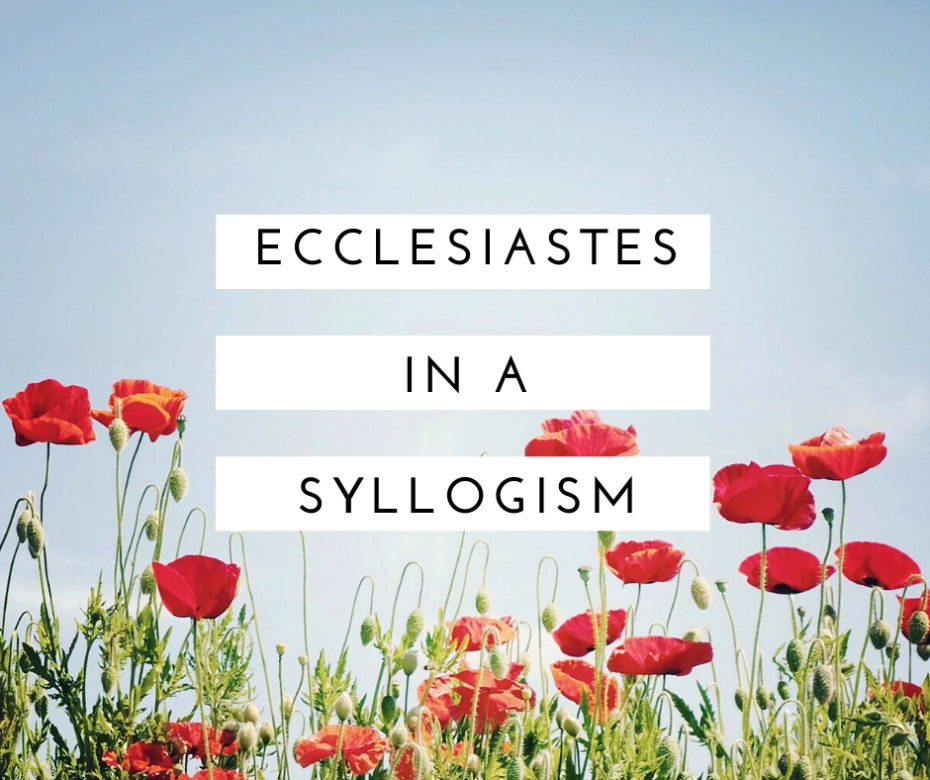As I was making lunch, my son, Zane, came into the kitchen and asked, “Has it been an hour yet?”
“An hour from when?”
“No! Just, has it been an hour?”
“From now? I’ll have to start counting.”
“No from later.”
“Well, if it’s an hour from later, then it hasn’t happened yet, because it’s now, not later.”
“Ugh, Dad. Has it been an hour yet or not?”
I couldn’t give Zane a proper answer until I could understand his question! (He wanted to know if his sister had to get off the computer and play with him.) Sometimes an answer won’t make sense unless you first know the question. Which brings me to Ecclesiastes. What purpose does Ecclesiastes serve in the Bible? As Peter Kreeft wrote:
“Ecclesiastes is the contrast, the alternative, to the rest of the Bible, the question to which the rest of the Bible is the answer. There is nothing more meaningless than an answer without its question. That is why we need Ecclesiastes” (Three Philosophies of Life, 19).
Ecclesiastes is the question.
So what’s the question? That is, what is Solomon’s basic argument in Ecclesiastes?
I think you can put it in the form of a simple syllogism.
Premise 1: All labor is under the sun (Eccl 1:3).
Premise 2: All under the sun is vanity (Eccl 1:14).
Conclusion: Therefore, all labor is vanity.
Is Solomon right? Is everything we do vain?
If his conclusion stands, it would be a devastating blow to anyone or to any philosophy, religion, or worldview that has tried to seek meaning “under the sun.” Materialism, hedonism, Marxism, existentialism, pragmatism, agnosticism, pantheism, paganism, etc. Ecclesiastes would be a reductio ad absurdum challenge to them all. But it would also be a challenge to Christians to explain why our lives aren’t ultimately vain, too. After all, the Bible says so, doesn’t it? Is there any hope?
Ecclesiastes explores and defends the second premise of the syllogism. Solomon will recount all the different ways he looked for meaning under the sun and explain why they all failed to satisfy. Understanding where Solomon failed to find meaning may help us understand today’s culture. People are looking everywhere under the sun for meaning—and they have relatively fewer opportunities and resources than Solomon had for conducting the experiment.
If Solomon can show that meaningfulness and purpose do not come from under the sun—if everything (that he has tried) really amounts to vanity—that raises one of the biggest questions of all: if you can’t find meaning under the sun, where can you find it?


